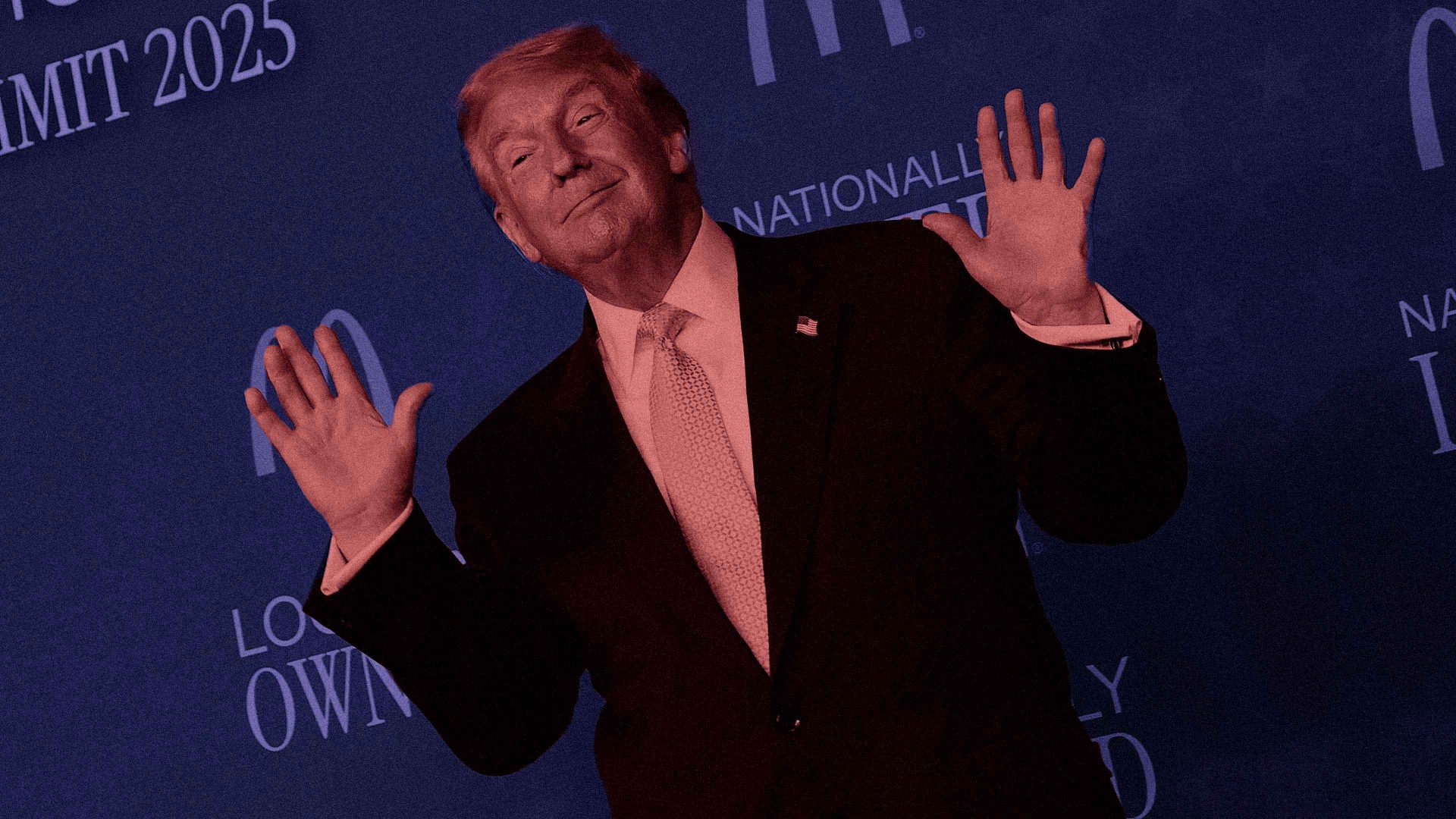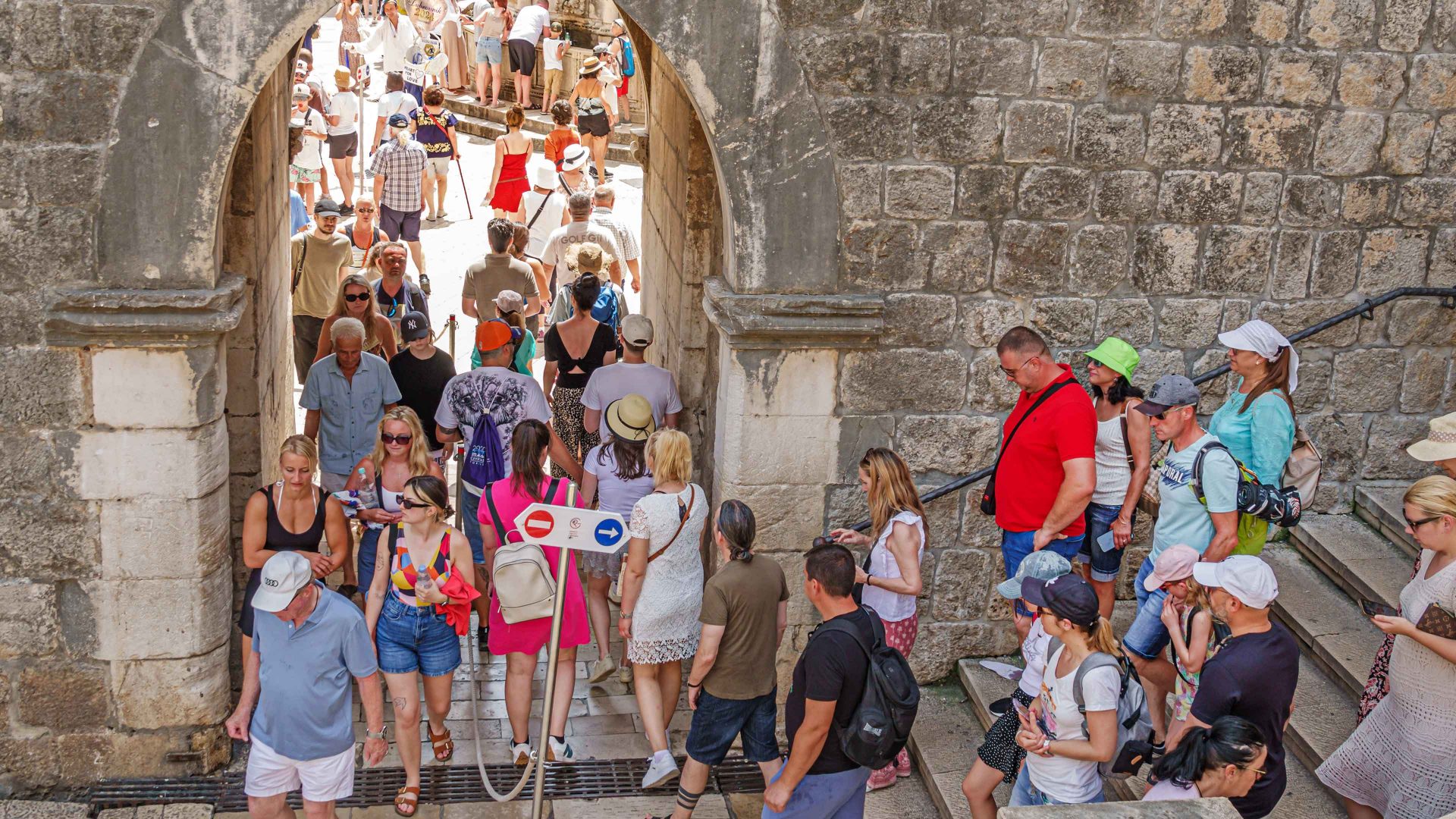In the United States, the passing of the seasons is marked not only by the changes in the foliage in my patch of Washington DC suburbia, but changes on the supermarket shelves.
Not a day passes in the US without some celebration to hitch a sale to, and no sooner had the plastic skeletons and wispy ghosts of Halloween been packed away when the inflatable turkeys started appearing. Thanksgiving is on its way.
For all my British cynicism, I have come to embrace Thanksgiving, which falls on November 27 this year. There is mercifully little related tat, and Americans of all faiths enjoy a secular holiday with no gifts changing hands.
So I cheerily roast marshmallows atop a gratin of sweet potatoes and I pretend to like it. This year, the plan is to visit friends in Texas, joining some 80 million Americans on the move in the busiest travel week of the year.
But this year’s holiday is a little different. America is emerging from the longest government shutdown in its history. For 43 days, around 1.4 million federal workers received no pay; vital food assistance to 42 million low-income Americans stopped; tens of thousands of flights were cancelled as exhausted air-traffic controllers took second jobs driving for DoorDash and Uber.
The reason for the shutdown was the health insurance subsidies for 22 million Americans that are due to expire in December. Democrats wanted those subsidies to continue. Republicans did not. Eventually six Democrats broke party ranks and the spending package was voted through without those subsidies.
Now, there is the pantomime of life returning to normal: we are being assured that flight delays should be resolved before Thanksgiving. The Supplemental Nutrition Assistance Program (SNAP) that one in eight Americans rely on to put food on the table is creaking back to life. Federal workers will receive back pay.
But the social safety net that protects many Americans is in jeopardy. Thanksgiving is meant to be a festival of abundance. But huge swathes of the country are worrying that life is about to get harder.
The word that has Donald Trump fuming whenever he hears it is affordability. It was the watchword of Zohran Mamdani’s campaign to become Democratic mayor of New York City, and of successful Democratic gubernatorial campaigns in New Jersey and Virginia.
The cost of living remains the top concern for Americans, with inflation stubbornly high, but Trump recently called a question about affordability from a White House reporter “fake” and “disgusting”, and has labelled the word a “con job”.
It’s not hard to see why it’s a sensitive topic. Trump won the election largely because people in America felt hard up, with prices rocketing in the aftermath of Covid. But he has struggled to bring prices down. His tariffs have caused prices to go up instead.
Now, the information war has started, with the White House in full denial mode, wheeling out charts and cherry-picked statistics focused on the few items that have reduced in price.
Even as people across America line up at the already-stretched food banks for frozen turkeys to try to patch together their holiday meal, Trump has been touting a Walmart report that claims the retailer’s Thanksgiving shopping basket is 25% cheaper than last year.
What Trump failed to mention is that it is cheaper because it contains nearly half the number of products and a smaller turkey. And it would not be much use to me: both the sweet potatoes and the mini marshmallows it contained last year have been dropped.
Ahead of the midterm elections in 2026, Trump is falling into the same trap as Joe Biden and Kamala Harris a year ago: telling Americans that the economy is healthy when everyone knows it isn’t.
Trump is clearly getting rattled: on Friday he announced that he would remove tariffs on food staples including coffee, beef and some fruits, a tacit admission that one of his key policies is driving up prices.
So while Americans were having their food assistance payments stopped on November 1, Trump was posting images of the golden taps and marble in the refurbished White House Lincoln bathroom. He then hosted a lavish, Gatsby-themed party at his Mar-a-Lago estate.
But we all know what happened after the Golden Age: the stock market crashed, and both the US and the world were plunged into the Great Depression.
Charlotte McDonald-Gibson is a journalist and author of Cast Away: Stories of Survival From Europe’s Refugee Crisis



